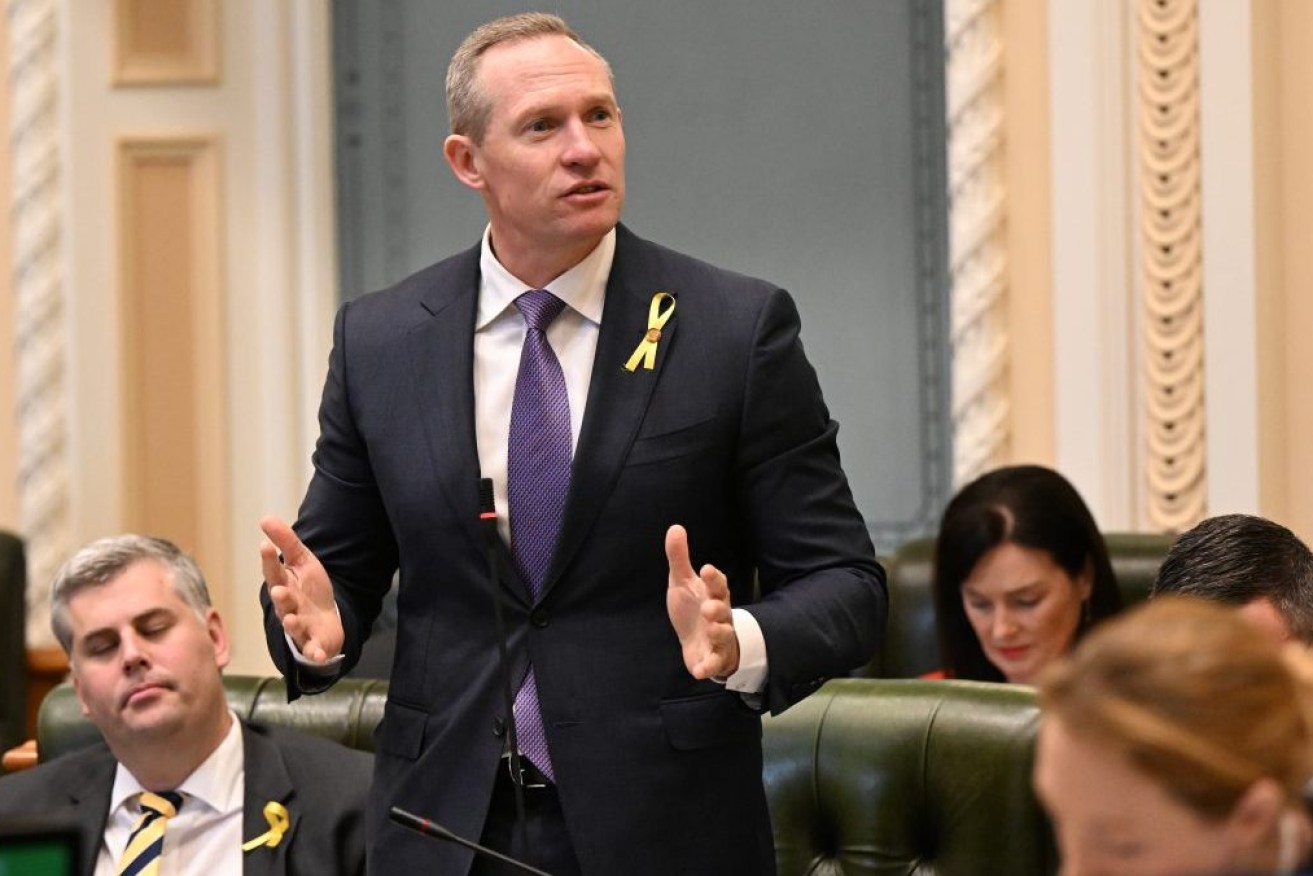Government opts for caution with new hydrogen transport laws
The State Government has included safety as a critical requirement in its new approval regime for hydrogen pipelines and transport, including the use of toluene.

Queensland Minister for Energy, Mick de Brenni (AAP Image/Darren England)
Legislation was passed by Parliament, the Gas Supply and Other Legislation (Hydrogen Industry Development) Amendment Bill which the Government said would unlock an estimated 10,000 jobs and $33 billion in economic activity by 2040.
About 50 hydrogen projects are at various stages of development and the legislation would mean renewable hydrogen and gases could be piped across Queensland and to global trade partners.
“The amendments also ensure that safety is paramount, and the existing regulatory framework applying to natural gas and petroleum pipelines are expanded to include hydrogen and hydrogen carriers,” the Department of Energy and Public Works said.
Hydrogen is considered highly explosive and highly flammable. It is also difficult to compress.
It is therefore contained in other materials for transport so the legislation paves the way for transport of ammonia, methanol, methyl-cyclohexane (MCH), dimethyl-ether and toluene in pipelines.
American health authorities say toluene exposure may cause liver and kidney damage. Toluene affects the central nervous system, eyes, skin, respiratory system, liver and kidneys. It is a volatile organic compound (VOC) that is flammable and toxic. Exposure to toluene can cause a variety of health problems.
Energy Minister Mick de Brenni said green hydrogen offered the greatest jobs, climate and export opportunity in a generation and the new laws would go a long way to helping Australia reach net zero by 2050.
“Not only will green hydrogen be a game changer for the transport, heavy haulage, shipping, and aviation industries, which currently account for more than 20 per cent of Australia’s emissions – but it will also unlock a pipeline of new jobs in new industry,” he said.
“We’re delivering new regulations to make bottling Queensland’s sun, wind and water to help our international trading partners reach their net zero emissions commitments easier, while maintaining safety for everyone involved.”
Resources Minister Scott Stewart the hydrogen industry must be developed in a way that ensured the safety of workers and the community was paramount.
“This legislation not only enables the transportation of hydrogen through pipelines but puts in place conditions to make sure it’s done safely.”
Australian Energy Producers Queensland director Keld Knudsen said the legislation was a positive step for Queensland’s path to net zero, enabling all hydrogen types to be transported and regulated.
“It underscores the important role the gas industry is playing in the energy transformation, helping unlock net zero technologies such as low-carbon hydrogen. Queensland’s strong gas industry can help develop a hydrogen sector given our expertise, infrastructure and commercial relationships which have made the state a leading global energy supplier through the Gladstone LNG projects,” he said.
“Natural gas with carbon capture, utilisation and storage (CCUS) is the cheapest and most technologically advanced hydrogen pathway, delivering more emissions reductions per dollar today. Over a quarter of hydrogen in 2030 will be made from natural gas with CCUS under the IEA’s Net Zero by 2050 scenario.”












